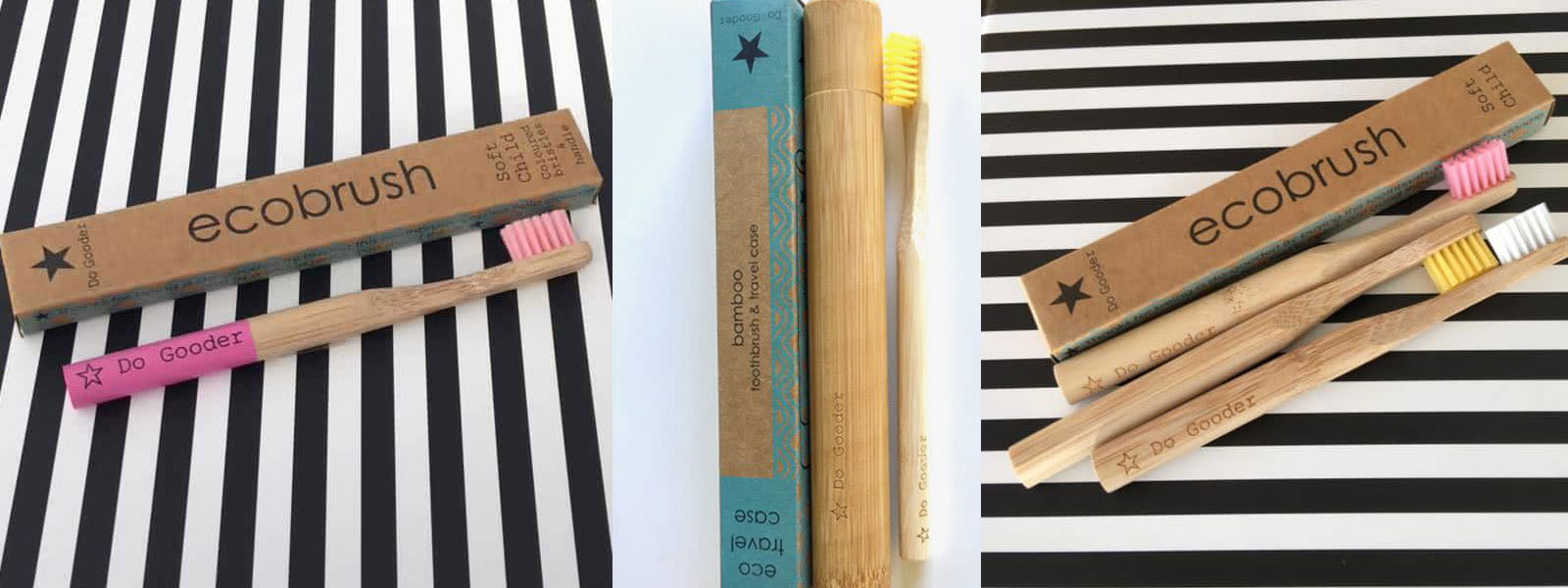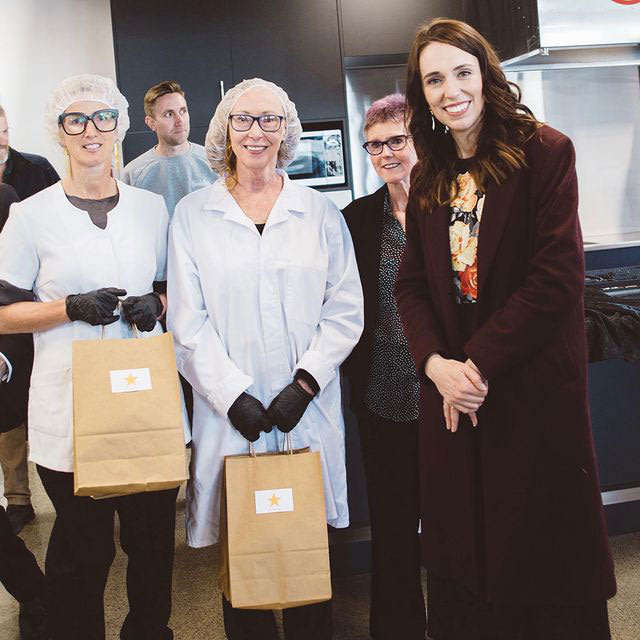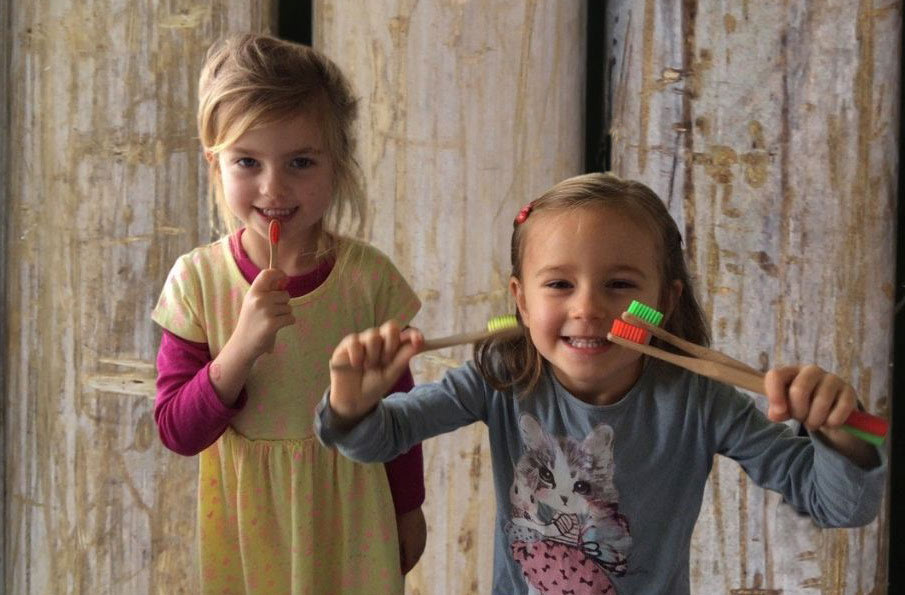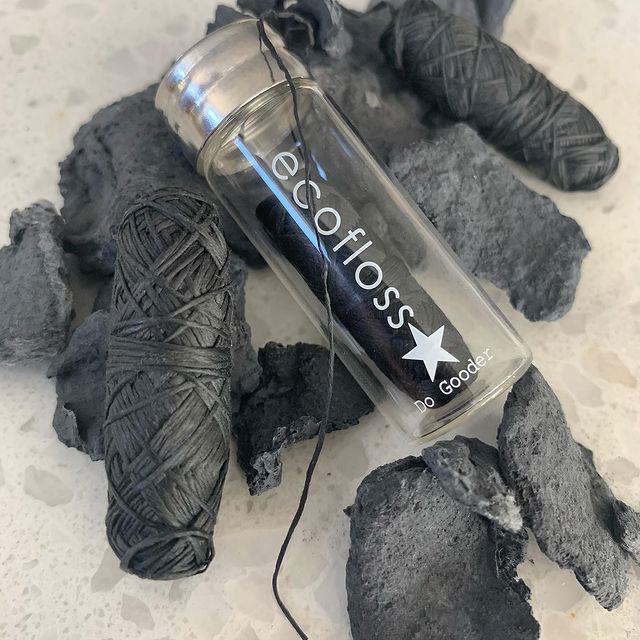Smiles To Go For Sustainability

MOTAT’s Love/Science exhibition tells stories about incredible inventions by incredibly passionate people.
Often, these stories spring from one person's desire to help their community or follow their dreams. One such company is Do Gooder from Nelson, the eco-minded start-up that sells biodegradable bamboo toothbrushes and other natural dental products. The company is featured in the exhibition’s section that celebrates people who find new, greener solutions for old pollution problems.

Owner and dentist Nicky Francis’ eco-lightbulb lit up in 2017. She describes it as “one woohoo moment and one devastating moment.” While throwing out yet another pile of plastic from her dental practice, she made a conscious decision to help reduce the waste that the dental industry — and her own practice — was creating. And it’s a lot.
The devastating moment was a real shock and a revelation. The dental practice was consistently seeing kids with terrible toothaches and awful oral hygiene. These children needed to take days off school and were genuinely unwell. After asking if they were brushing their teeth and giving them a hygiene lesson, it dawned on Nicky to ask if they actually even owned a toothbrush?
“In a heart-breaking moment we realised how many kids in our region weren’t brushing because they simply didn’t have a brush,” Nicky said.
DISEASE OF POVERTY IN AOTEAROA
In 2019 more than 40% of five-year-olds in New Zealand had tooth decay. It’s a growing problem and Ministry of Health figures show the number of children needing general anaesthetic for rotten teeth removal increased from 4,500 to 6,600 between 2001 and 2016. NZ Dental Association spokesperson Dr Rob Beaglehole feels that tooth decay rates are a ‘disease of poverty’ which has long-term negative effects on a young person’s life.
With these two revelations in mind, the eco-project and business took off from there. But giving away one toothbrush per client wasn’t enough. Do Gooder donates over a whooping 10,000 toothbrushes a year to the school dental therapists who see the worst of our country’s dental problems, as well as other charities needing support. Research shows poverty as a major causal factor in the increasing number of children admitted to hospitals for dentistry. Frequently, all their teeth are removed.
“I’ve cried to myself, I’ve cried with the parents, I’ve offered ridiculous advice. Advice that is correct, but simply not applicable to these families,” Nicky says. “Giving a child a toothbrush gives them pride, you want to see their little faces light up when they have something of their very own.” Seems like such a simple thing, but it means so much.

BAMBOO TOOTHBRUSHES GO MAINSTREAM
Imported from China, the toothbrushes are certified sustainable with biodegradable bamboo handles but nylon bristles which are still the best for teeth, according to Nicky. “Being a dentist, it was essential to source good products, products that were good for the user, and better for the environment,” she added. The company has two types of eco-floss: one made from pure silk and the other from charcoal bamboo.

The toothbrush market is a crowded market, and even big companies like Colgate are selling bamboo brushes. (All bamboo brushes are not the same, so check out Consumer NZ’s review here.) Despite that, and with millions of toothbrushes still ending up in landfills, Nicky applauds the effort and reduction of waste, even if it means tougher competition for small start-ups like Do Gooder.
Why is bamboo so critical, from a sustainability standpoint? Bamboo is a really exceptional green building material. It is a sustainable material that requires very little energy to nurture, restrains soil erosion, supplies biofuel, extends wildlife refuge, and manufactures a wholesome food source for both humans and wildlife. Additionally, pesticides and chemicals aren't required when harvesting bamboo.
Need more? Well, bamboo also absorbs carbon dioxide and releases over 30% more oxygen than other trees. It grows amazingly fast, up to 3.8 centimetres in an hour. This makes it one of the best plants to fight pollution. No surprise, it’s the choice for toothbrushes, nappies, T-shirts, bamboo bikes, and for Do Gooders like Nicky Francis.
And it’s not the only area where Nicky’s dental practice is focused on sustainability. They make a conscious effort to source supplies that are reusable (and sterilisable, obviously!) and/or biodegradable. The practice also uses solar power to help reduce its carbon footprint. But even Nicky admits that dentistry, like so many other areas of the global economy, is still an area that needs massive work around sustainability. So, brush, floss, smile — and then let's all get down to work.
To learn more about Do Gooder, visit Dogooder.co.nz
Story by Rachel Bush, Exhibitions Curator, MOTAT
All photos courtesy of Nicky Francis
Cite this Article:
Bush, Rachel. Smiles to Go for Sustainability. New Zealand: MOTAT Museum of Transport and Technology. First published: 15 October 2021. URL
www.motat.nz/collections-and-stories/stories/smiles-to-go-for-sustainability